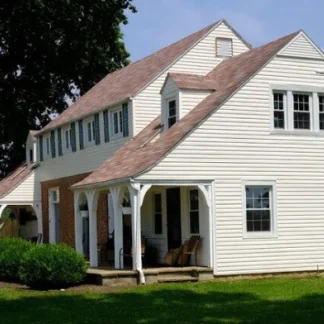Operation 6:12
Sugarcreek, Ohio, 2270 Co Road 70, 44681
Available Programs
- Adult program
- Open beds : 10
- Program for men
- Total beds : 20
- Young adult program
Insurance and Financial
- Self-pay options
About this Facility
Operation 6:12 is a faith based sober living environment in Sugarcreek, OH offering separate residences for men and for women. Recovery treatment includes a work program, small and large discussion groups, Bible studies, and biblical counseling.
Located in Sugarcreek, OH, Operation 6:12 is a faith based recovery center offering sober living environments for men and women. The program can house up to 10 men and 10 women, in separate living facilities. Operation 6:12 offers its own church and provides discussion groups, biblical counseling, Bible studies, and a work program to support participants and encourage long term recovery.
Operation 6:12 is free for participants. To cover the costs of their stay at the residential facilities, clients participate in a work program. This also allows participants to gain skills, strengthen their work ethic, build their resumes, and develop independence and discipline. Often, jobs that participants acquire continue beyond the program.
The women’s facility houses up to 10 women who share household and yard maintenance duties while working on their recovery. The facility is located 10 minutes outside of Sugarcreek, surrounded by farmland, to provide a peaceful setting conducive to healing.
The men’s facility is surrounded by farms in Ohio Amish country. The homestead includes farm animals and offers relative isolation. Cell phones are prohibited, and television viewing is limited. Participants are encouraged to interact with one another, study, work, read, write, and take walks on the property.
Church at the Barn is Operation 6:12’s own church. Current participants, their families, and graduates of the program make up the congregation. Activities include church services, baptisms, weddings, holiday celebrations, and fellowship meals.
Church at the Barn members are divided into smaller groups that meet weekly to discuss life and spiritual issues and support one another. Larger discussion groups meet monthly.
During Bible studies, participants are encouraged to study the Scriptures and apply lessons learned to their life challenges. Operation 6:12 invites pastors and other community leaders to teach and make connections with the participants.
The Life Alignment program is a counseling approach that combines counseling and Biblical principles. Psychoeducation sessions focus on providing strategies for participants to identify, understand, and surrender their destructive patterns. The program includes group sessions and individual sessions with a licensed professional counselor.
Contact us for more information: (330) 600-0072

Contact Operation 6:12
Connect with Operation 6:12 by calling their admissions team directly.
(330) 600-0072 Website Get Directions